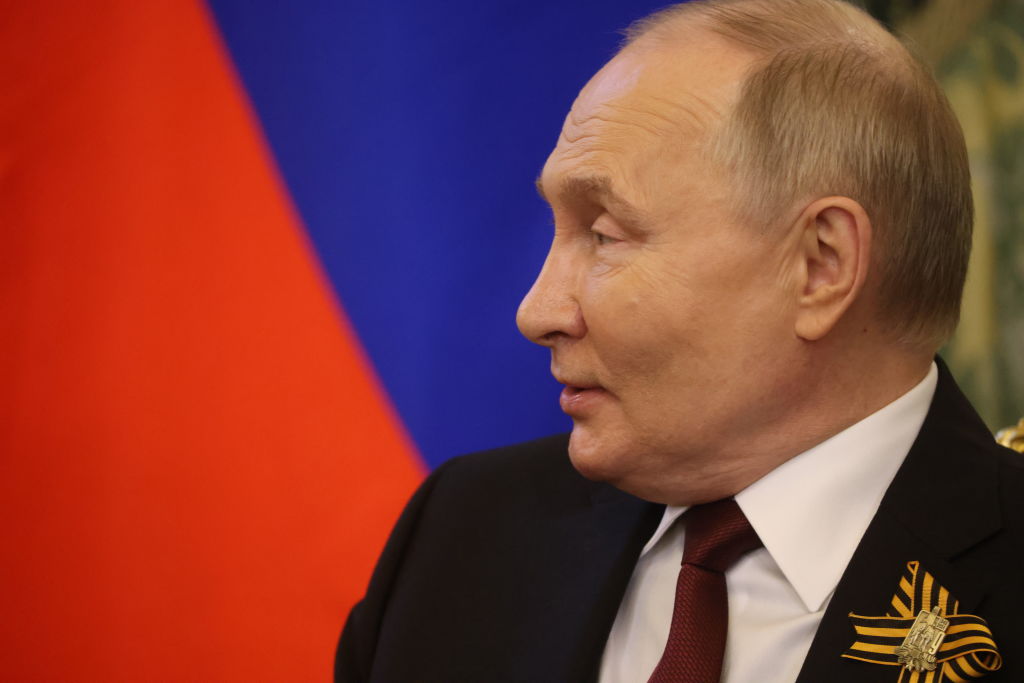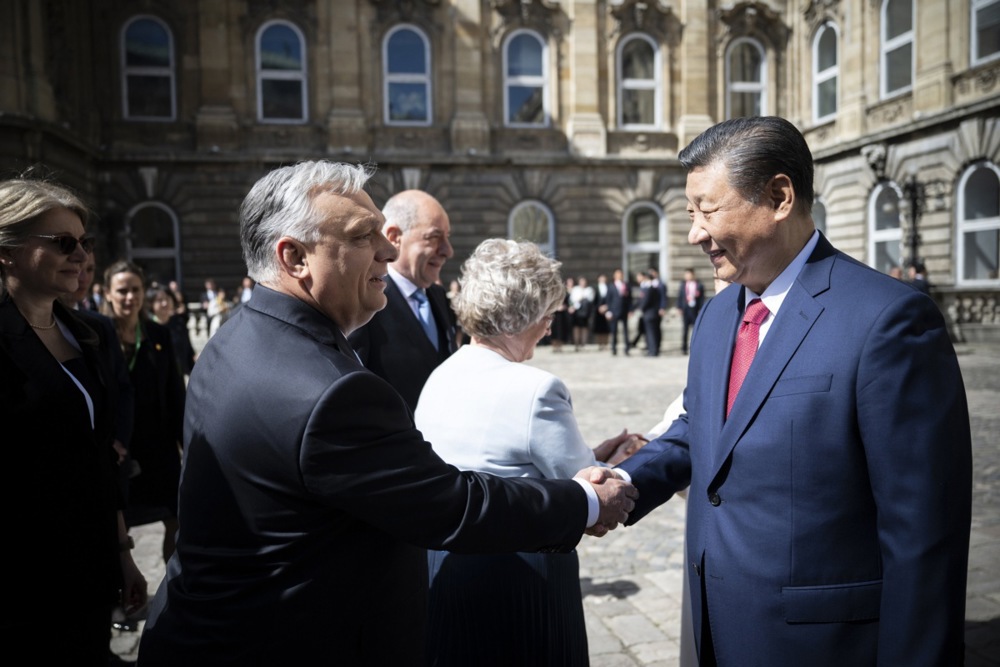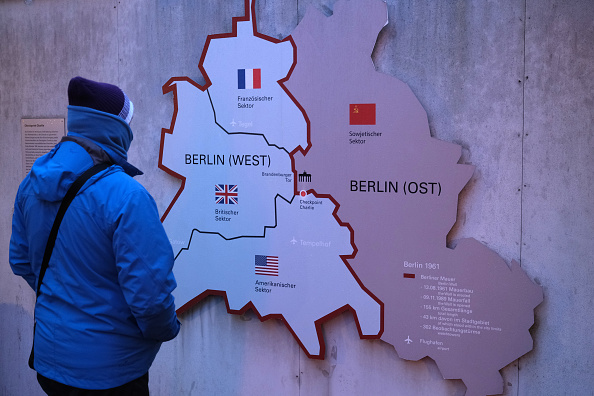The unexpected demise of Iran’s president Ebrahim Raisi, stoned to death with a mountain by the grace of a US-made helicopter, has opened up speculation as to the political changes that this act of divine justice might trigger in the murderous Islamic Republic and further afield.
High-level political deaths in office, natural or induced, always appear to hold up at least the possibility of radical re-setting of policy and therefore of the course of history itself, even – particularly when they occur without any warning and they involve powerful figures sitting atop autocratic regimes.
This expectation – or, better said, hope – is not at all unreasonable. The modern “Great Man” theory of history, that sees world events as driven primarily by the action of individual leaders rather than by wider “systemic” forces, has been with us since at least the days of Thomas Carlyle. Its roots of course trace back all the way to Plutarch, whose Parallel Lives of great ancient Greek and Roman statesmen and generals – the Bible of classical historical education – presented these heroes (and in some cases, villains) as key shapers of events in their time.
In our age attention is naturally focused on strongman leaders like Putin, Erdogan or Xi; their disappearance from the scene will certainly create some opportunity for change, although of course nothing is guaranteed. Many Western liberals would also add Viktor Orban or Serbia’s Vucic to the list, as well as Slovakia’s Fico who was in fact shot last week.
Reagan was also shot, in 1981, but lived to play the key role in bringing down the Soviet Union; had he died, his unique determination and charisma might well have been irreplaceable, Gorbachev might well have been outmanoeuvred in the end by his enemies at home, and the USSR might well have stumbled on until now like North Korea – or, worse, modernise in the Chinese Communist fashion.
In the end, everybody dies and all reigns or periods of elected office come to a close. But it is one thing when this happens naturally and expectedly at the end of a long time at the helm, usually with rules or succession plans in place; and a totally different thing when the cord of policy and strategy, especially in a highly personalised system, is cut abruptly or without any effective replacements available.
Let’s look at some of the most important leaders of the past, whose unique careers were cut short by fate, with far-reaching consequences for history (as far as it can be reasonably ascertained), primarily in Europe’s part of the world but not only. The focus here is on men who held the place of primacy and the highest authority in their polity at the time.
We shall not be considering deaths of simply “prominent” political figures – whether the Gracchi brothers, Robespierre or even the commendable hard-goodbye given to Bolsheviks like “Red Rosa” Luxemburg – even where they helped push politics as a whole in a certain direction. Nor are we interested in heads of state whose passing did lead to major policy shifts, if this occurred as a natural conclusion of their life and career (whether Louis XIV or Franco) or as a result of revolution (Charles I, Louis XVI, Nicholas II).
So here are, arguably, the top 15 sudden political deaths in history that forced events off their expected course:
- Servius Tullius, 535 BC. The popular and well-liked 6th king of Rome was killed by Tarquin who brought in a despotic regime that later led to his own removal and the establishment of the Roman Republic in 509 BC. Had Tullius lived, the SPQR might never have featured in the annals of history.
- Epaminondas, 362 BC. This exceptionally gifted Theban statesman and general brought his Beotian city to the apex of the Greek-world power-structure, defeating even Sparta along the way. Had he not died at the moment of his second great victory, at Mantinea, he could well have managed to consolidate the Theban hegemony and unite the Greeks to thwart Philip II of Macedon’s designs.
- Alexander the Great, 323 BC. The greatest conqueror of antiquity died at only 32. Had he lived on, not only would his empire have remained united, but eventually he would have almost certainly turned his attention westward towards Italy – like his great admirer and imitator Pyrrhus did only a few decades later. In that case, the history of Rome as a significant power would have met an early end.
- Crassus, 53 BC: The unexpected death of Crassus in the battle of Carrhae against the Parthians shattered the political equilibrium at Rome. The Triumvirate collapsed, leaving Caesar and Pompey to square off against each other in a fight to the finish. Had Crassus lived, the costly Civil War might have been avoided: the rise of Octavian (Augustus) would likely not have happened and the Roman Republic would have continued perhaps for another generation if not longer.
- Attila, 453 AD. The most terrible and effective of the near-subhuman Huns – indeed, of all the migrant barbarians invading Europe from the depths of Asia – died suddenly on the night of his wedding, at the height of his and his horde’s powers. He was poised to overrun what had been left of the Roman Empire at the time, with some imperial civilisation perhaps rubbing off on the steppe butchers.
- Ögedei Khan, 1241. Under Genghis Khan the Mongols conquered the single largest contiguous empire in history. The next Great Khan, Ögedei, continued the expansion: his generals from hell pushed their brutal invasions and atrocities right into Central Europe. Mongol power seemed unstoppable. A crusader army led by the Knights Templar was almost wiped out in Hungary and the road to Vienna lay open. But then Ögedei died and the Mongol generals halted the campaign and went back to Mongolia to elect a new Khan, never to return. Pure luck.
- Richard the Lionheart, 1199. Admittedly a bad king, Richard Coeur de Lion was however an exceptional military leader with an extraordinary chivalric reputation throughout Christendom. At the time of his death on campaign in France he was only 41. Had he lived, he would have been more than capable to create a powerful English kingdom and dominate Western Europe. He might have also organised another crusade and ensured the long-term viability of Outremer, especially with Saladin dead from 1193. At home, his reign might well have prevented the emergence of Magna Carta and subsequent English constitutional tradition, for good or ill.
- Henry V, 1422. The victor of Agincourt had France in the palm of his hand when he died at 35, having been named as next in line to the French throne through the Treaty of Troyes in 1420. He didn’t get to exercise his new right in the end, but if he had, the Hundred Years War would have been settled on English terms, and there might have never even been a “France” to speak of, in the following centuries.
- Pope Alexander VI, 1503. The infamous Borgia Pope was a master statesman and power-player in the Italy of Machiavelli’s and the de Medici’s time. His son, Cesare, had already become a prominent general and had carved out new states for himself. The Borgia power, both military and financial, was increasing across the peninsula, and it was arguably on track to dominion. But everything collapsed when the Pope and Cesare were poisoned. Italian history would have looked rather different had Alexander survived.
- Gustavus Adolphus of Sweden, 1632. One of history’s great commanders, Gustavus built Swedish power in the 17th century by storming into Germany during the Thirty Years’ War and winning several battles. It looked like he was going to not only win the whole conflict decisively for the Protestant cause, but that he would win territories for Sweden in Germany and make his country a permanent player in Central European politics. None of this came to pass: Gustavus the Great was killed in the battle of Lützen.
- Nicholas I of Russia, 1855. The arch-conservative Tsar (apparently Putin’s favourite of them all) ruled with autocratic authority in the old Russian tradition. His reign saw social unrest, including the Decembrist revolt and peasant uprisings. Nicholas pursued an aggressive foreign policy, getting himself into the Crimean war which he continued beyond reason. His untimely death from pneumonia opened the door to peace negotiations.
- Alexander II of Russia, 1881. Succeeding Nicholas to the throne, he ended the Crimean war and initiated a programme of reforms – to the point where he acquired the cognomen of “the Liberator”. His assassination at the hands of Russian nihilist terrorists led to a period of repression under his successors and contributed to the revolutionary movements that eventually culminated in the events of 1917. Had he lived, he might well have seen off the revolutionary threat (no Lenin!) and move Russia more strongly towards liberalisation.
- Stalin, 1953. Admittedly, Stalin was already in declining health by the time he finally expired but he could have still carried on for a few more years. Had he done so, it’s not at all clear that the Korean War would have ended in 1953 or even that the “reformist” Khruschev would have succeeded him. His reaction to the events of 1956 in Hungary and the Suez Crisis would likewise have been different – or perhaps would have prevented these developments in the first place. De-Stalinisation might’ve had to wait until the 1960s.
- JFK, 1962. Had he survived the assassination attempt (which would have increased his heroic aura), Kennedy could have been in power until January 1969. He might have had more political capital to push civil rights legislation earlier and with less disruption. Given his experience with Berlin, the Bay of Pigs and the Cuban Missile Crisis, he might’ve well have avoided escalation in Vietnam. As the ultimate champion of space exploration, he would’ve likely continued to press forward with it and perhaps influence the next administration to keep up rather than defund America’s space efforts – so we might have already colonised the Moon by now. Finally, the Cold War might have ended sooner.
- Yitzhak Rabin, 1995. The Oslo Peace Accords, to which he had been instrumental, required strong political leadership and authority to sustain. Only Rabin could provide that within Israel. His assassination set back the Israeli-Palestinian peace process. This might have happened anyway, but certainly, had Rabin lived, there would have been a clearer chance at consolidating a long-term solution to this issue.
These brief examples serve as a reminder of how quickly and how much things can change (there are no rules, of course). At each of these points in time, history seemed to flow or at least to point in a particular, well-set direction. The “great men” at the forefront of events were widely expected, for good or ill, to continue their careers at least for a number of years.
It was difficult to imagine the world without them, in that moment, as it is today for us with respect to the likes of Putin or Xi. Yet if anything is constant in this world, it is that things change. So even when our predicaments look truly grim there should be no room for despair: as with the death of Ögedei, we might simply get lucky at the very last moment even if all else fails, including our leaders. Carry on!






The age of American power has barely begun – that’s what the history of Rome suggests